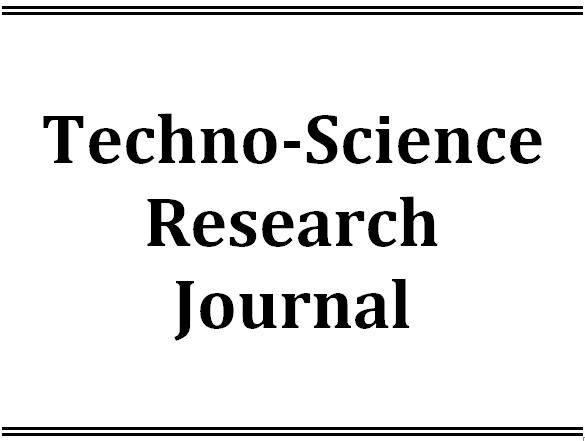Latest Issue
The Negative Experiences of Low-Income Citizen Commute and Their Intentions Toward Public Bus in Phnom Penh
Published: December 31,2025Reliability Study on the Placement of Electric Vehicle Charging Stations in the Distribution Network of Cambodia
Published: December 31,2025Planning For Medium Voltage Distribution Systems Considering Economic And Reliability Aspects
Published: December 31,2025Security Management of Reputation Records in the Self-Sovereign Identity Network for the Trust Enhancement
Published: December 31,2025Effect of Enzyme on Physicochemical and Sensory Characteristics of Black Soy Sauce
Published: December 31,2025Activated Carbon Derived from Cassava Peels (Manihot esculenta) for the Removal of Diclofenac
Published: December 31,2025Impact of Smoking Materials on Smoked Fish Quality and Polycyclic Aromatic Hydrocarbon Contamination
Published: December 31,2025Estimation of rainfall and flooding with remotely-sensed spectral indices in the Mekong Delta region
Published: December 31,2025Detection and Susceptibility of Antibiotic-Resistant Enterococcus spp. in Fermented and Pickled Vegetables
-
1. ITC
Academic Editor:
Received: January 22,2024 / Revised: / Accepted: January 22,2024 / Available online: June 01,2020
The study was carried out on detection of Enterococcus spp. in fermented and pickled vegetable products from markets in Phnom Penh and determination of their antibiotic resistance. Thirty-nine samples were collected from six different sites and classified into six categories of fermented and pickled vegetable products. Samples were subjected to physicochemical and microbiological analysis, followed by isolation and antibiotic susceptibility test conducted by paper disk diffusion method with eight antibiotics such as ampicillin, ciprofloxacin, doxycycline, erythromycin, levofloxacin, tetracycline, tigecycline and vancomycin. The results showed that pH values of fermented vegetable samples ranged from 3.73 to 4.74, followed by total acidity varied from 1.05% to 1.60% and the salt content was in range of 3.31% to 5.41%. Moreover, most of collected samples were contaminated with Enterococcus spp. with highest occurrence of 4.22 log CFU/mL in fermented spiderwisp and fermented chilli that originated from orussey market, except three samples were not detected of Enterococcus spp. such as fermented mustard greens from orussey market, fermented mustard greens and small fermented cucumber from Aeon supermarket. Among the 144 strains of Enterococcus spp., 54.17% exhibited their resistance to tigecycline followed by 17.36% resistance to erythromycin, 13.19% resistance to ciprofloxacin, 10.42% resistance to tetracycline, 9.03% resistance to vancomycin, 6.25% resistance to ampicillin, 4.86% resistance to levofloxacin and 3.47% resistance to doxycycline. As conclusion, Enterococcus spp. were present and able to survive in fermented and pickled vegetable products. Most of isolated strains of Enterococcus spp. demonstrated their potential resistance to tigecycline.

